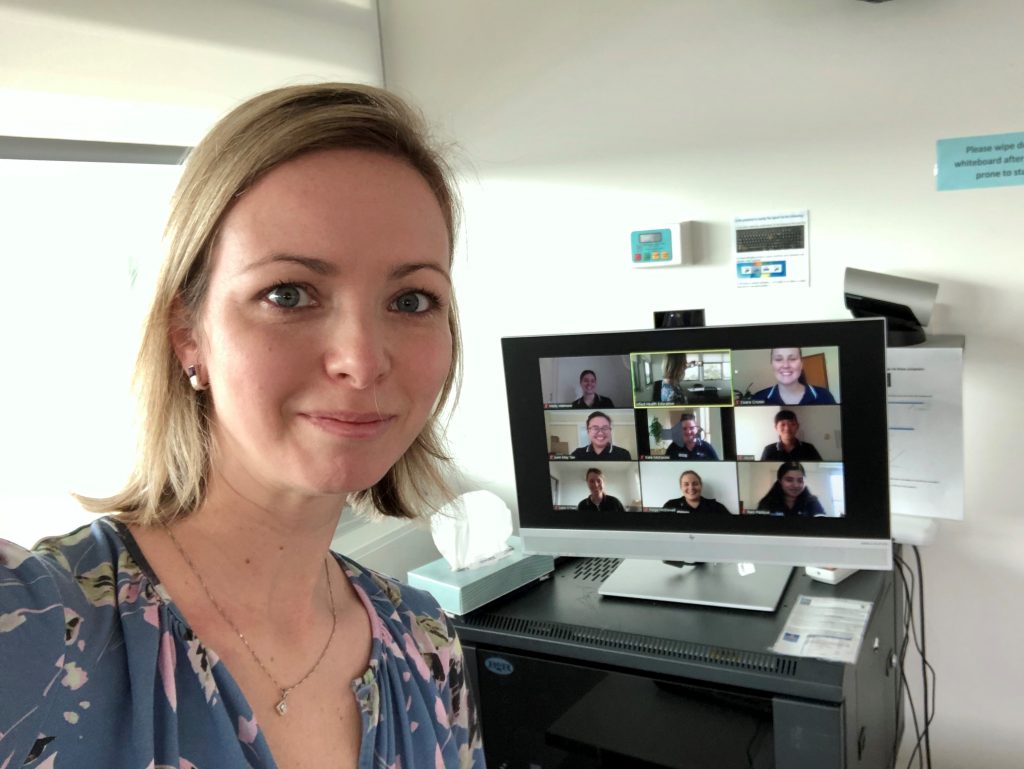 September 23, 2020
September 23, 2020When the first COVID-19 wave hit, learning and education was one of many processes that had to be quickly changed and adapted to the new reality. The education leads across the organisation were facing the same challenge – how to keep the education going – and with the roll out of MS Teams, things have become more streamlined.
Bec Gilbert, Manager Organisational Capability, explained that this is online learning’s big moment and education and training is about to be revamped just as much as the industries that are moving to remote working.
“From cancelled face-to-face sessions to physical distancing and limited opportunities for practical competency assessments, the COVID-19 pandemic has forced Northern Health educators and trainers across all disciplines to review our current practices. This reality has forced a crash course for online learning plans and technology use for every one of us. Video conferencing platforms such as Microsoft Teams are being used heavily, as is our Learning Management System – myLearning,” she said.
Molly Galea, Allied Health Education Lead, explained that a lot of allied health education is about bringing different professional groups together and then putting the education into practise.
“Education for us is putting all the knowledge and experience in one room, sharing that and asking questions, with the aimed outcome of people going away motivated to try something they have learned at the session. Our challenge is creating a space where people can learn from each other, as an important part of education is to keep the knowledge moving around the organisation,” Molly said.
“Initially, there was a lot of training relating to adapting to a COVID-19 environment – like Telehealth, PPE training, looking for signs of family violence etc. Now, that has been incorporated in every day work and people are starting to ask for our regular training, which is a good sign,” she said.
Education leaders across the organisation, Leah Hansen, Keith Amarakone, Talin Gochian and Rachael Coutts, all agree that teams had to quickly adapt, and the movement to online education has had both it’s positive sides, as well as the challenges, like teaching practical skills.
“If we don’t deliver on some of the content for nursing education, then we don’t have the workforce for next year and we don’t have certified staff that are able to practice in the areas really important in pandemic times. Coming up with innovative ideas to deliver education is an absolute requirement,” Leah said.
“The adaptability, flexibility and the willingness to come along and fix problems and share ideas, from everyone involved in the process, has just been amazing. If we didn’t have the pandemic pushing us, this would have been a two year project, but we built it within a week, we found a solution and just went with it,” Rachael said.

Featured image: top row – Penny Remston, Clinical School Coordinator, Nursing and Midwifery; middle row – Kerryn Asbury, Clinical Nurse Educator (left), Talin Gochian, Allied Health Clinical School Coordinator (right); front row: Bec Gilbert, Manager Organisational Capability (left) and Nichita Gavrilescu, Senior Medical Registrar (right).


